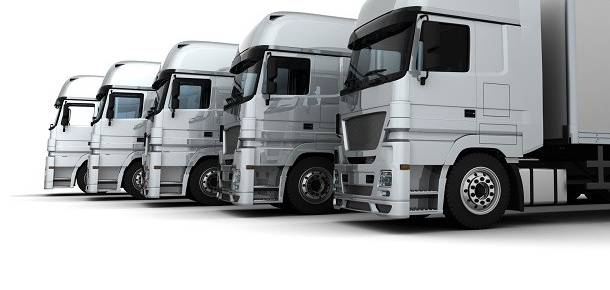
The climate law supports the heavy goods vehicle sector in its ecological transition.
In fact, 2040 will mark the end of the marketing of trucks, buses and coaches using fossil fuels. In any case, this is the objective set by the National Assembly in its vote last Friday. The amendment was voted unanimously at first reading by the deputies as part of the review of the climate law.
Over the years, heavy-duty engines have often evolved. Standards followed one another until the latest - the Euro 6 standard - with the aim of reducing their consumption and greenhouse gas emissions. This means that all those involved in heavy vehicle mobility have long been aware of the problem of pollution.
With the vote on the amendment, the deputies decided to go further and accelerate the pace by setting a course and a deadline. 2040 is the chosen deadline. It will mark a harmonization between new heavy goods vehicles and private cars in order to "bring France into a dynamic of decarbonization of heavy vehicles" as explained by a deputy.
MEPs have shown the firm intention of leading the sector to turn to clean energy sources such as electricity, hydrogen or biogas. Many city buses are already running in our streets on electric or biogas but the ambition of the law is to give manufacturers a horizon in order to turn away from heat engines to now offer vast ranges of clean engines.
This of course is not without raising the problem of costs; industrial production costs but also vehicle purchasing costs. Indeed, transport companies are regularly obliged to modify their fleets in order to acquire vehicles equipped with the latest standards. The purchase prices are always higher and the investments made very heavy. To offer alternatives, the Minister for Transport Jean-Baptiste Djebbari has already promised "to accelerate aid" for the renewal of the electric and hydrogen fleet, 50,000 euros for trucks and 30,000 euros for buses and coaches. Even if the amounts are not enormous when we know the cost of the rolling stock, the incentive has the merit of existing. Now all that remains is to put the offer in front.
With regard to the production of clean vehicles, one can question the ability of manufacturers to meet the deadline. As stressed by certain deputies, unanimous "to go very quickly", "but when will we be able to massify the production of heavy-duty hydrogen or biogas at reasonable prices?"
Another example perfectly illustrating the transformation of the sector, the manufacturer Volvo Group has already tackled the problem. Indeed, Claes Eliasson, spokesperson for Volvo Group said last Friday, we are “Committed to respecting the Paris climate agreement and decarbonizing transport. Part of this transformation is to start replacing the materials in our vehicles with non-fossil alternatives ”
Of all the materials used in the manufacture of heavy vehicles, steel is the one that poses the most problem in terms of pollution and which represents the most significant climatic issue. As the International Energy Agency (IEA) points out: “the iron and steel sector is the first in terms of CO2 emissions among heavy industries. With 2.6 billion tonnes of direct carbon dioxide emissions per year, that's 7% of the world's total energy-related emissions - and more than emissions from all road freight. "
That is why it was urgent to tackle this problem at a time when the entire heavy transport sector is beginning to overhaul.
Volvo Group has therefore been a pioneer by signing an agreement with its compatriot, the steelmaker SSAB. This company has found a way to produce new steel without coal and without fossil fuels. Using “green ” hydrogen in particular, SSAB is the first manufacturer to offer steel without fossil fuels. To do this, it has joined forces with the Swedish public mining group LKAB and the energy company Vattenfall. Together, they developed the “Hybrit” project for steel production without CO² emissions.
Thanks to this merger, the Swedish manufacturer intends to launch, as of this year, the first prototypes equipped with SSAB steel before being able to be mass-produced on a " small scale " in 2022. Indeed, as Claes Eliasson emphasizes: " Mass production will not be achieved for several years, depending on the quantities that steel suppliers such as SSAB can supply ”.
Either way, this news may well be the most promising that the heavy vehicle transport industry has seen in a long time. There is no doubt that other manufacturers will examine this small revolution very closely and certainly follow suit.
Posted on 2021-04-12 07:00








Comments